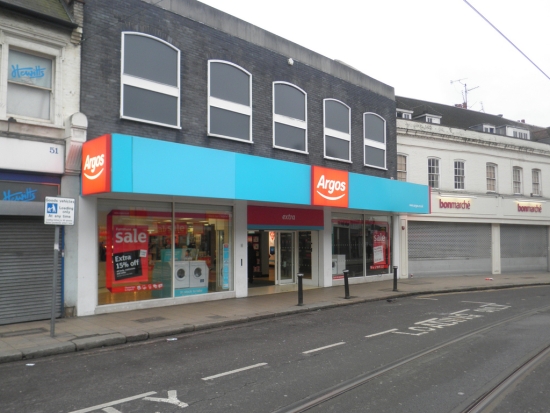For some time now the internet has been playing a prominent role in the British retail environment, with consumers increasingly turning to online stores such as Amazon and play.com in order to make their everyday purchases. Even the grocery sector has been affected by this technological progress, with many supermarkets now allowing their customers to do their weekly shop online and have the items packaged and delivered to their doorstep.

Argos has introduced a click and collect service
Now commercial property investment firm British Land has warned retailers that failing to keep abreast of developments in the digital field in order to avoid joining the growing list of retail companies entering administration. The advice comes as British Land released annual results for the retail industry which showed a slip in profits.
While British Land admits that the economy has played a role in this issue, as consumer spending power has lowered noticeably, they believe that retailers can minimise the risk of losses by incorporating internet shopping into their existing business models. Should stores choose to stick to the original physical retail format, it believes they run the risk of becoming “essentially obsolete.”
A statement from the firm reads; “The way people shop is changing.
“The internet lies at the heart of these changes not only because of the immediacy of being able to buy online but also because of the way it enables consumers to compare prices and quality, share their opinions and shape the development of products and services.”
There are many ways retailers can take this advice on board for a reasonable cost, and the results can have a dramatic impact on the fortunes of the business. Argos, for example, has ended its five year loss-making streak by investing further in a “click and collect” service, which has allowed busy consumers to make their order online and pop into their nearest store to collect purchased items.
This is especially clever as consumers also save on delivery costs by using this method, thus placing the retailer one step ahead of online competitors which have no commercial property branches.
Yet there are many other ways businesses can improve their digital presence to suit their business needs – many clothing chains have chosen to offer customers free wifi access in their stores so they can browse for specific items online and try these items on immediately. Offering free internet access can also benefit book stores, especially if they contain a concessionary coffee shop, as consumers can browse the stock online whilst relaxing with a hot drink.
Internet shopping has been touted as the greatest threat to the high street in recent years, but by adapting to the new retail environment rather than battling change, retailers have the opportunity to build their business and strengthen their core in a way that was impossible before the digital marketplace existed.
Do you think retailers can survive if they keep a “traditional” mindset, or do you agree that progression is the key to traversing the 21st century retail industry?
Previous Post
Tenants Have the Upper Hand in Australian Market